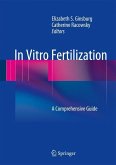The births of more than 100 apparently normal infants at term following pregnancies initiated by in vitro fertilization and embryo transfer testifies to the successful clinical application of insights obtained from studies in reproductive biology over the last 20 years. In women, these studies have included: 1) characterization of the changes in blood hormone profiles throughout ovulatory menstrual cycles; 2) documentation of the hormonal composition of antral fluid in developing and degenerating preovulatory follicles; 3) correlation of these observations with the state of oocyte maturation and the fertilizability of the oocyte; 4) application of pharmacologic agents for perturbing the normal hormone profiles to regulate the number of preovulatory follicles developing and the time of ovulation; and 5) development of non-invasi ve methods for monitoring follicular development. Optimizing methods for maturing and fertilizing eggs, for moni toring normal development in vi tro, and for transferring and achieving implantation of embryos are continuing concerns of physicians and scientists responsible for extant programs. In addition, all serious students of reproductive biology should critically examine every facet of the processes which must concatenate to assure birth of normal infants following pregnancies achieved by these methods. However, the literature which contains the informational substrate is dispersed widely in a plethora of journals not always readily accessible. Bringing the essentials together facilitates both rapid retrieval of data and access to relevant literature.
Hinweis: Dieser Artikel kann nur an eine deutsche Lieferadresse ausgeliefert werden.
Hinweis: Dieser Artikel kann nur an eine deutsche Lieferadresse ausgeliefert werden.








